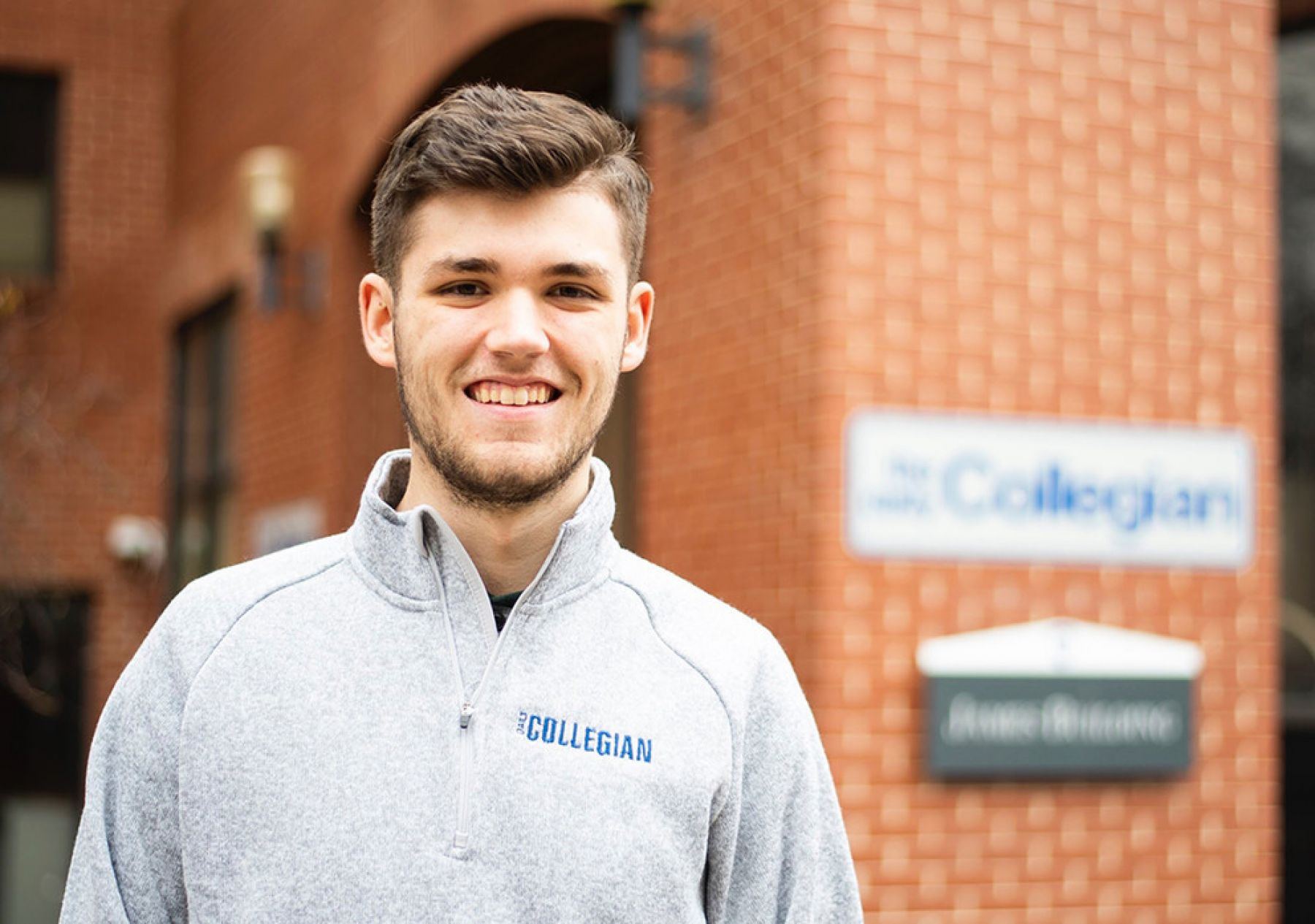Student journalist reaches finals of Hearst Journalism Awards Program

With a bit of humility, David Eckert describes himself as a sports guy slightly out of place in a news reporting world this week during the 60th annual Hearst Journalism Awards Program individual writing championships.
Eckert, a journalism major who earned his bachelor’s degree in May, certainly belongs, though, and an unusual year might be just the right time for someone who’s not cast from the traditional mold to succeed.
Eckert is the 20th Penn State student to earn a spot in the individual writing championships since 2007.
He’ll be competing against seven others as the annual competition moves to a virtual setting for the first time. The finalists were selected from winners and top finishers among students who submitted 652 writing entries in monthly competitions conducted the past year.
Individual championships are also being held in multimedia, photography, radio and television categories. All participants are competing for scholarship awards ranging from $1,500 to $10,000 in the competition often referred to as “the Pulitzers of college journalism.” It’s sponsored by the William Randolph Hearst Foundation.
“I’m a sports person. I know this isn’t going to be easy. I’m really going to have to do some research because whatever we write about might not be a subject I’m familiar with,” said Eckert, who complemented his journalism classes as a writer and editor for The Daily Collegian, and completed a long-term internship with Blue-White Illustrated during his undergraduate career. “There are other people from Penn State who’ve done this that I’ll reach out to, but at the same time, it’s so different from what they did.”
Along with his writing, Eckert, from Hawley, Pennsylvania, also served as the inaugural president of the Penn State chapter of the Associated Press Sports Editors.
He qualified for the individual writing championships by winning a monthly competition with his feature story about college hockey players who typically arrive on campus older than other freshmen. It was the product of a depth reporting class in the Donald P. Bellisario College of Communications.
“I thought it was a pretty good story. I didn’t think it would win,” Eckert said. “A lot of writers think everything they do is terrible. I think I can tell when something was good, but I didn’t think it was that good. So it was a pleasant surprise.”
He appreciated the depth reporting class, which provided mentorship from faculty members like Russ Eshleman, an associate teaching professor and head of the Department of Journalism, and John Affleck, the Knight Chair in Sports Journalism and Society and director of the John Curley Center for Sports Journalism at Penn State.
“I really enjoyed the process. It’s a semester’s worth of working on something and I wanted to do well,” Eckert said. “Russ is not a huge hockey fan and when I explained the dynamic of the sport with older players as my story idea, he was interested. And John was a consistent, strong resource as well.”
Eckert traveled and interviewed junior hockey players, typically the age group (late teens, early 20s) that matriculates to college, in Pennsylvania and Ohio. He also shadowed a Penn State freshman, Kenny Johnson, for a day on campus.
Eckert balances his genuine humility with abundant hard work. He arrived at Penn State with an interest in journalism borne from success in high school English. That broadened to storytelling and writing. Plus, he enjoyed sports and found a focus, as well as growth and numerous opportunities, covering Penn State’s nationally ranked men’s hockey program.
Eckert thrived because of an internal motivation. While he developed into one of the more knowledgeable media members covering the hockey team, he knew relatively little about the sport when he arrived on campus.
“At the beginning I was scared almost. No reporter wants to be wrong and look like an idiot. I was just sitting in my dorm room Googling things about hockey to increase my knowledge,” he said. “Plus, the landscape of college hockey is so much different. You have to educate yourself on that as well.”
Eckert believes his storytelling and writing have improved greatly during his time at Penn State. He’s well positioned to begin his career and pursue his dream job of covering an NHL team. Still, his process writing remains somewhat unchanged — and productive.
He’ll follow that same process this week. Competitors in the individual writing championships met this weekend, conducted interviews on Monday and have until Thursday to submit their final stories.
The annual championships in all divisions are administered by the Hearst Foundation under the auspices of the Association of Schools of Journalism and Mass Communication. Presently, 104 colleges and universities with accredited undergraduate journalism schools are eligible to participate in the Hearst Journalism Awards Program.

